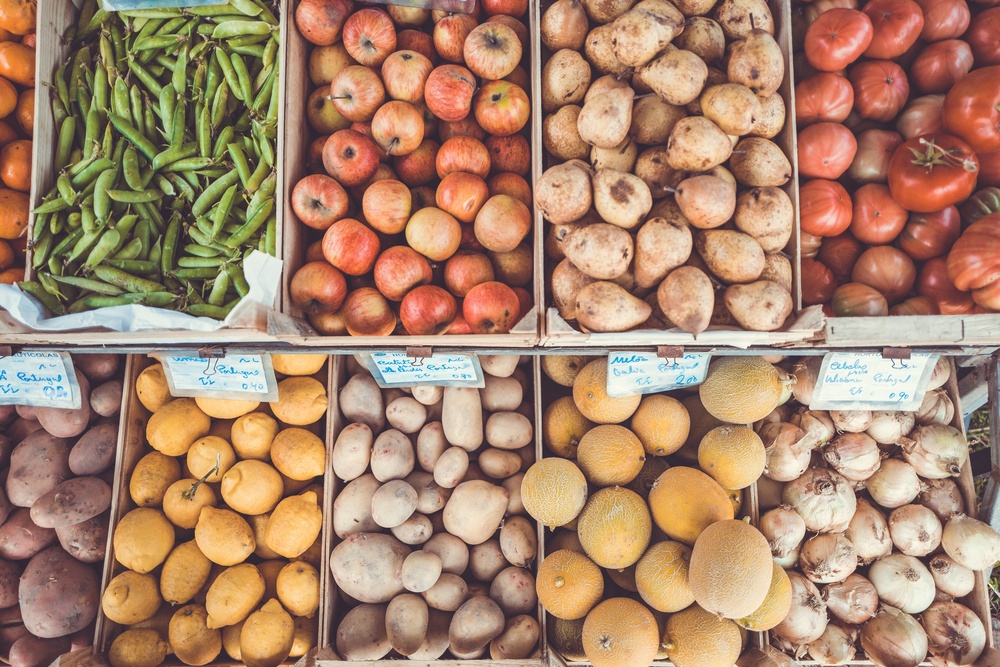Like thousands of other Americans, it all started with Food Inc. It was December 2009 and I was wrapping Chrismas presents in our small first home (shout out to CSL #829 – a lot of good memories there!). Nick decided to put on Food, Inc and probably still regrets that decision, lol.
Here’s What Food, Inc. Taught Me:
- Grocery stores stock an average of 47,000 products, most of which are produced by only a handful of food companies
- Most processed food is just clever rearrangements of corn (i.e. cellulose, saccharin, polydextrose, xanthan gum, maltodextrin, high fructose corn syrup) – seriously, check your labels
- 1 in 3 Americans born after 2000 will contract early onset diabetes (among minorities, the rate will be 1 in 2)
- 4 beef packers control 80% of the market
- Ground beef from the grocery store has thousands of different cows mixed up in it so the chance of one of the cows in your dinner having a disease is increased
- Chickens are being raised in half the time they were in the 1950s, but are twice as big and are bred to have bigger breasts (so big they often can’t stand)
- The tomatoes you buy in the grocery store are picked when green and then ripened with ehtylene gas
Once my eyes were open I got hungry for more information and started talking to people about it. I was at my best friend Dana’s place and she grabbed a book from her shelf that I had to read. It was The Omnivore’s Dilemma: A Natural History of Four Meals by Michael Pollan. Michael asks the very normal question of: What’s for dinner? And shows us where 4 very different dinners come from: McDonald’s, Whole Foods, a small farm and from foraging and hunting.
Here’s What I Learned From The Omnivore’s Dilemma:
- Food consumption has always been dictated by a food tradition that embodies the wisdom of earlier generations, but Americans lack that culture. As such, we are more susceptible to diet fads.
- One in every three American children eats fast food every day
- One in every five American meals is eaten in the car
- The average item of food travels 1,500 miles before arriving on an American’s plate
- The food industry burns nearly 1/5 of all the petroleum consumed in the United States, more than our cars; more any other industry
- The cheapest calories in the supermarket are the most fattening: a dollar can buy 1,200 calories of potato chips and cookies, but only 250 calories of a whole food like carrots
Well, one thing leads to another and if you love Michael, you’re probably going to love Mark. So I got my hands on Food Matters: A Guide to Conscious Eating by Mark Bittman.
The Facts in Food Matters:
- Americans raise 60 billion animals each year for food – 10 animals for every human on earth
- We grow more corn for livestock and cars than for humans, and it’s subsidized by more than $3 billion annually
- 40 calories of fossil fuel are required to produce 1 calorie of beef protein
- Together, soy and corn account for 50% of the total U.S. harvest
- 50% of the antibiotics administered in the U.S. go to animals
- Livestock produce more greenhouse gas than the emissions caused by transporation
- The health industry continues to promote consumption and “cure” over lifestyle modification
- Americans consume 10 times as much meat as people in many developing countries
- Each American eats an average of 1 cup of sugar a day
Food, Inc set me on a journey that started with anger and frustration, but that has led to a healthier, happier, and more holistic me. Stay tuned for Part II of this series where I share my tips on how to be part of the solution, eat better, and feel better. (It’s not all gloom and doom, I promise!)

